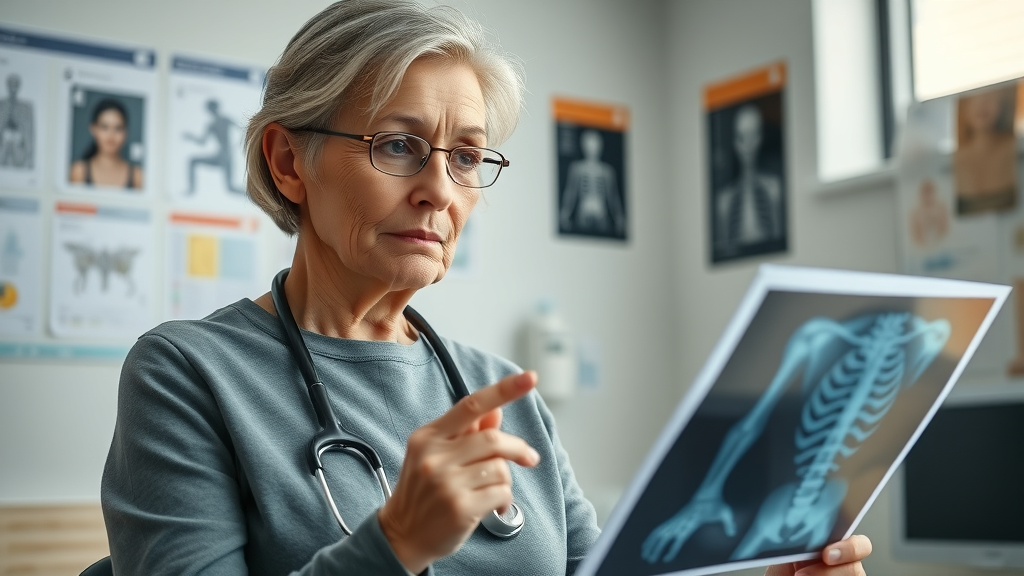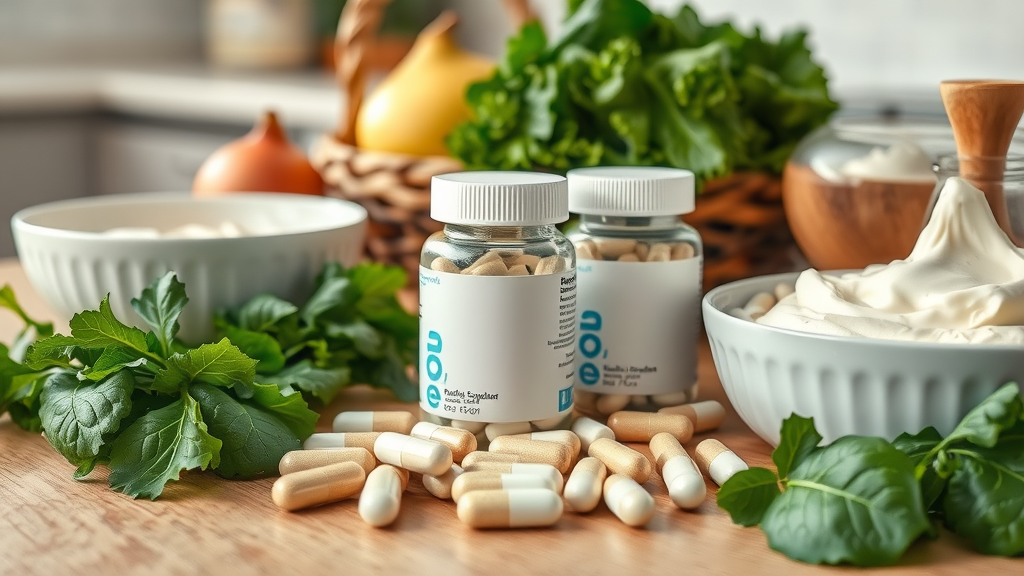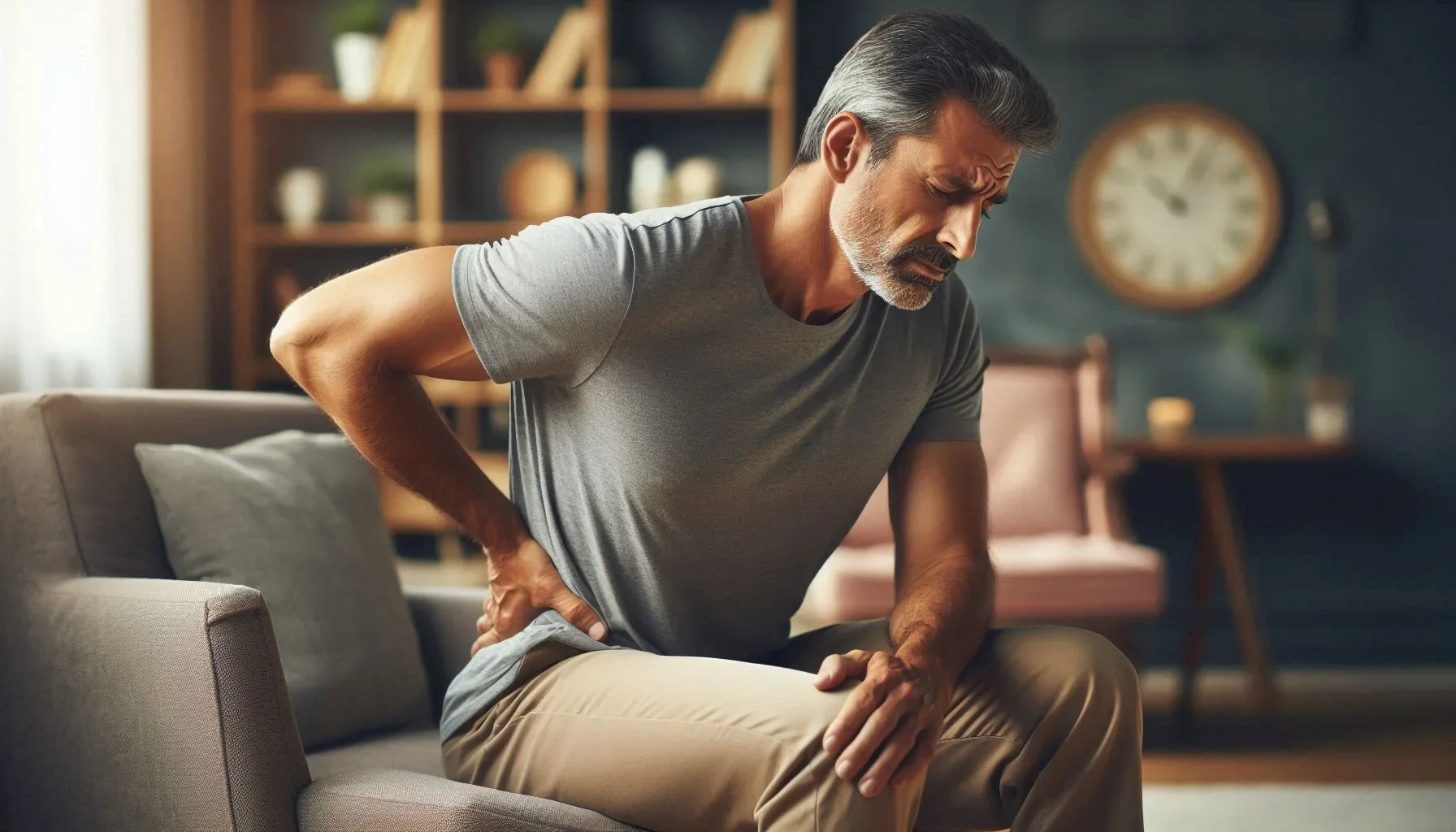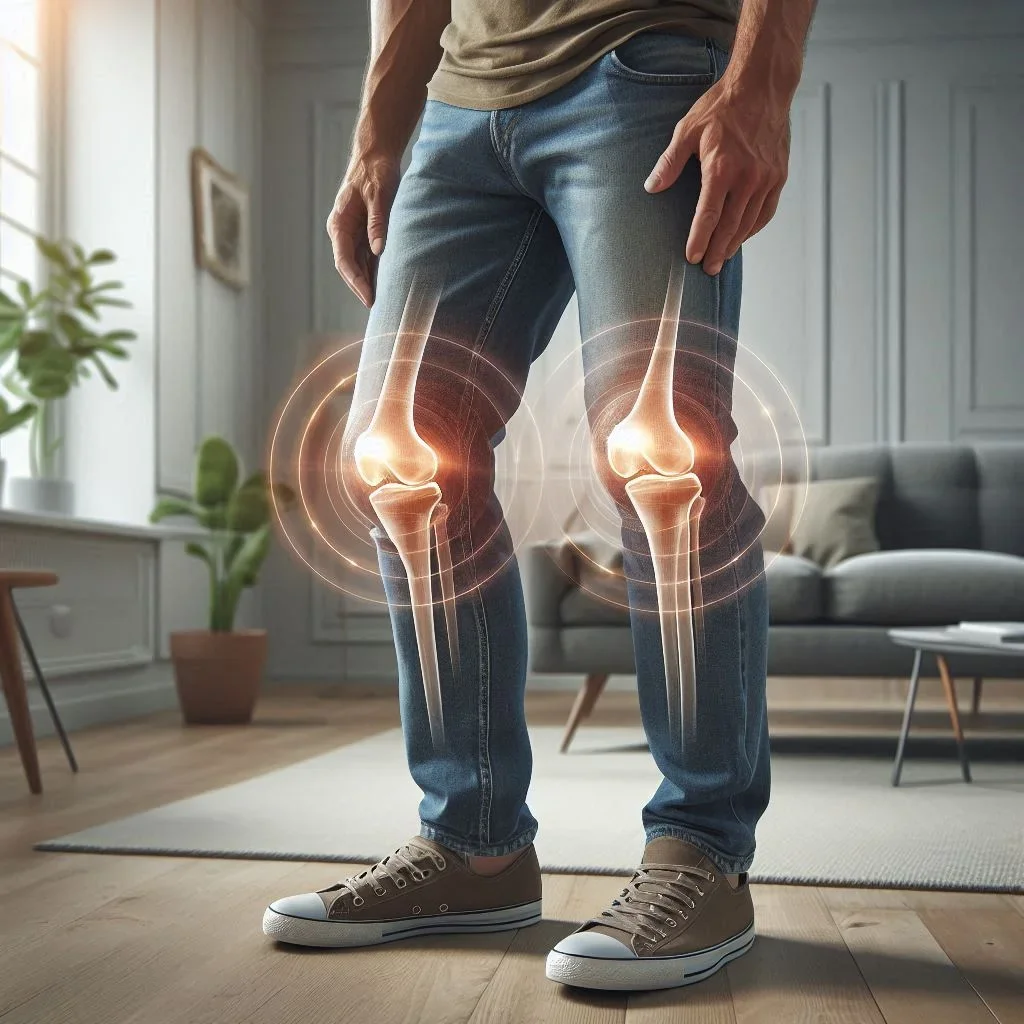Did you know that women can lose up to 20% of their bone density within five to seven years after menopause? It’s a shocking statistic that highlights why maintaining optimal bone health is a critical concern for women over 50.

In this comprehensive guide, we’ll uncover what are the best bone health supplements for women over 50, with expert insights, supplement comparisons, practical tips, and everything you need to make informed choices for your bone health journey.
A Startling Look at Bone Health: Why It Matters After 50
Entering your fifties signals a pivotal point for bone health, making it essential to focus on strong bones and healthy bone maintenance, especially for women. As estrogen levels decline after menopause, bone loss accelerates, increasing the risk of osteoporosis and fractures. According to the National Osteoporosis Foundation, one in two women over 50 will break a bone due to osteoporosis. That's why understanding what are the best bone health supplements for women over 50 goes beyond curiosity—it's a vital step in safeguarding your well-being, independence, and quality of life.
The focus on maintaining healthy bones isn't simply about adding supplements; it’s about building a strong foundation for aging gracefully. Bone density, bone strength, and the supportive role of key vitamins such as calcium and vitamin D supplements are crucial for preventing fractures and maintaining mobility. Below, we’ll unravel the science, review expert recommendations, and provide actionable steps for integrating the most effective bone-supporting strategies into your daily routine.

What You'll Learn from This Guide on What Are the Best Bone Health Supplements for Women Over 50
Key nutrients necessary for healthy bones over 50
How bone health supplements support bone strength and density
The role of calcium and vitamin D supplements
Expert guidance and safety considerations
Understanding Bone Health in Women Over 50
The Science of Bone Density and Bone Strength
Bone health forms the core of overall wellness as women age. Bone density refers to the amount of mineral content within bones, making them strong and less prone to fractures. Over time, women naturally lose bone mass, but the rate of bone loss accelerates significantly after menopause due to hormonal changes—especially the decrease in estrogen, which helps maintain bone strength.
Healthy bones require a constant balance between bone breakdown (resorption) and new bone formation. When resorption outpaces formation, bones weaken, putting women at increased risk for osteopenia and osteoporosis. That’s why proper intake of nutrients, particularly calcium and vitamin D, becomes increasingly important for women in their 50s. Understanding the mechanics of bone strength helps inform your choices about the best supplements and proactive care for aging bones.

Risk Factors Affecting Healthy Bones
Several risk factors play a role in bone health decline. These include advancing age, family history of osteoporosis, sedentary lifestyle, low body weight, smoking, excessive alcohol consumption, and chronic medical conditions such as arthritis or thyroid disease. Medications like corticosteroids can also accelerate bone loss.
Dietary habits contribute significantly: insufficient intake of calcium and vitamin D impairs the body’s ability to build strong bones. Poor nutrition, especially low consumption of dairy products, leafy greens, or fortified foods, amplifies the risk. Regular use of certain medications and the presence of gastrointestinal conditions that affect nutrient absorption can further compromise your bone health. By identifying these risk factors early and addressing them, women over 50 can better protect their bone density and maintain a foundation for lifelong mobility.
It's also important to recognize that bone health is just one aspect of overall wellness as we age. For a broader perspective on maintaining vitality and preventing age-related conditions, you might find it helpful to review why cancer screenings are essential for adults over 50 and how proactive health measures can make a significant difference.
Top Bone Health Supplements for Women Over 50: What Do Experts Say?
Calcium and Vitamin D: Foundations for Strong Bones
Calcium and vitamin D supplements are the undisputed cornerstones of bone health and essential for keeping bones strong and healthy. Calcium is the primary mineral found in bones, making calcium supplements vital since the majority of bone tissue consists of calcium phosphate. Without adequate calcium, your body will draw from bone reserves, leading to a gradual decrease in bone density. For women over 50, experts recommend 1,200 mg of calcium daily, sourced from diet or calcium supplements, especially when dietary intake is insufficient.
However, calcium alone is not enough. Vitamin D supplements are equally important, as vitamin D enables your body to absorb calcium efficiently. Without enough vitamin D, you can’t maintain proper calcium levels, undermining the very foundation for strong bones. The National Institutes of Health advise 600-800 IU of vitamin D daily for women over 50, though some may need more based on individual vitamin D levels and health care provider recommendations.

“Adequate calcium and vitamin D are the building blocks of strong bones, especially for women after menopause.” — Dr. A. Clarke, Endocrinologist
Magnesium, Vitamin K2, and Other Key Nutrients for Support Bone Health
While calcium supplements and vitamin D supplements are fundamental, other nutrients also play a pivotal role in keeping bones strong and healthy. Magnesium assists in the conversion of vitamin D into its active form, helping the body absorb calcium and support bone strength. Studies show that women with low magnesium intake are at higher risk of poor bone density. Daily recommendations hover around 320 mg for women over 50, best sourced from nuts, whole grains, and leafy greens or high-quality supplements.
Vitamin K2 is another crucial component; it helps direct calcium into bones instead of soft tissues, reducing arterial calcification and supporting healthy bones. Some research suggests that vitamin K2 supplementation may decrease bone loss and the risk of fractures.
Other helpful nutrients include collagen, which provides structure to the bone matrix, and trace minerals like boron and zinc, which aid in bone metabolism. By choosing supplements with these supportive elements, women can maximize the benefits for bone health and longevity.

Choosing the Right Calcium Supplements for Women Over 50
Selecting the best calcium supplement isn’t always straightforward. There are several forms on the market, including calcium carbonate and calcium citrate, each with unique advantages. Calcium carbonate delivers the highest amount of elemental calcium but should be taken with food to enhance absorption. Calcium citrate, on the other hand, is absorbed well on an empty stomach and is often recommended for women with gastrointestinal sensitivities.
Dosage matters: “mg of calcium” refers to the elemental amount in the supplement—always check labels to ensure you’re meeting your needs without exceeding safe limits. It’s also crucial to look for third-party testing and certifications to guarantee purity and potency. Some calcium supplements are combined with vitamin D, magnesium, or K2 for enhanced efficacy, supporting a more holistic approach to bone health. Personalized advice from a care provider ensures the most effective and safe options for your unique needs.
Comparison of Common Bone Health Supplements
Supplement |
Function |
Recommended Dosage |
Potential Benefits |
|---|---|---|---|
Calcium (carbonate/citrate) |
Builds and maintains bone mass and strength |
1,200 mg daily (total from diet & supplements) |
Reduces risk of bone loss & osteoporosis |
Vitamin D3 |
Helps body absorb calcium efficiently |
600–800 IU daily; more if deficient |
Supports strong bones & reduces fracture risk |
Magnesium |
Activates vitamin D for bone absorption |
310–320 mg daily |
Improves bone density & muscle function |
Vitamin K2 |
Directs calcium into bone tissue |
90–120 mcg daily |
Helps prevent arterial calcification |
Collagen peptides |
Supports bone matrix for flexibility/strength |
2.5–10g daily |
May enhance bone density and resilience |
Boron, Zinc, Trace Minerals |
Support bone metabolism |
Varies (see product label) |
Contributes to overall bone health |
The Role of Lifestyle in Supporting Bone Health: Beyond Supplements
Exercise, Diet, and Habits for Bones Strong and Healthy
Supplements alone aren’t enough to build strong and healthy bones; a balanced diet and lifestyle are essential to support bone strength. Lifestyle factors—particularly weight-bearing exercise and a nutrient-rich, balanced diet—are crucial for supporting bone health throughout your fifties and beyond. Regular activities like walking, resistance training, and yoga help stimulate new bone formation and improve balance, reducing the risk of falls and fractures.
Diet-wise, focus on foods high in calcium (dairy, leafy greens, tofu, and fortified products), vitamin D (fatty fish, eggs, fortified dairy), and magnesium (nuts, legumes, seeds). Good habits—such as limiting soda, reducing alcohol, avoiding smoking, and prioritizing fall prevention—work synergistically with supplements to preserve bone strength. Never underestimate the impact of a holistic lifestyle for maintaining strong bones and overall vitality as you age.

“Supplements can only be effective when paired with a strong commitment to healthy living.” — Dr. M. Jensen, Nutrition Expert
How to Choose the Best Bone Health Supplement for Women Over 50
Check ingredient transparency and quality
Look for third-party certifications and clinical backing
Assess dosage recommendations for strong bones
Consider potential interactions with medication
Read reviews and expert recommendations
When selecting a bone health supplement, always prioritize brands that provide full ingredient transparency and independent third-party lab testing. Check dosage recommendations carefully, ensuring supplements don’t exceed the recommended mg of calcium or vitamin D levels, which could cause side effects. Look for evidence-based formulas that include all the key nutrients discussed—including magnesium and vitamin K2—for a holistic approach.
Be mindful of preexisting conditions or medications that might interact adversely with certain nutrients. Consult a qualified care provider or registered dietitian before adding new supplements, especially if you’re managing chronic conditions or taking other medications. Finally, tap into user reviews and endorsements from medical experts to inform your decision. With the right approach, you can confidently support your bone health well into your golden years.
Potential Side Effects and Safety of Bone Health Supplements

While bone health supplements are generally safe and effective, overuse or improper combinations can lead to adverse effects. Excessive calcium supplements may contribute to kidney stones or cardiovascular issues, and excess vitamin D may cause high blood calcium, leading to nausea or confusion. Interactions between magnesium, vitamin K2, and certain medications should be discussed with your health care provider to avoid complications.
Choosing high-quality supplements and adhering to appropriate dosing reduces the risk of negative side effects. Be alert for signs of digestive upset, allergic reactions, or unusual symptoms after starting any new supplement. Always communicate with your care provider before beginning, adjusting, or combining supplements. Ongoing monitoring and routine blood tests can help ensure that your approach to healthy bone maintenance is both effective and safe.
Watch leading nutritionists explore supplement options, answer common questions, and share their top picks for women over 50.
People Also Ask: What Is the Best Bone Supplement for Women Over 50?
The best bone supplement for women over 50 typically combines calcium supplements and vitamin D supplements, as both are essential for building and maintaining strong bones. Supplements with added magnesium, vitamin K2, and collagen may further enhance benefits, offering a more comprehensive toolkit for bone strength. It is always best to consult with a care provider to determine the right combination based on your specific health profile and bone health needs.
Remember, no single product fits all. Individual nutritional needs, medical history, and lifestyle factors should guide supplement choices for optimal healthy bone support.
People Also Ask: How to Increase Bone Density in Your 50s?

Increasing bone density in your 50s starts with consistent weight-bearing exercise combined with bone health supplements to support bone strength. Pair this with a balanced diet rich in calcium, vitamin D, magnesium, and protein—think leafy greens, dairy, nuts, and lean meats—to give your bones the nutrients they crave. To further support bone density, reputable bone health supplements fill in nutritional gaps and strengthen your defenses against age-related bone loss.
Manage risk factors such as avoiding excessive alcohol, quitting smoking, and being mindful about medications or conditions that impact bone mass. Regular check-ups and bone scans can monitor progress and prompt early intervention if needed, facilitating better outcomes for strong bones well into your later years.
People Also Ask: What Does Mayo Clinic Recommend for Osteoporosis?
The Mayo Clinic recommends prioritizing both calcium and vitamin D for osteoporosis prevention and management. They also advocate for regular physical activity, a diet rich in bone-building nutrients, and lifestyle modifications that reduce fall risk. In certain cases, medications or advanced therapies may be prescribed based on the degree of bone loss and individual risk factors. Consult their published guidelines or your own health team to tailor recommendations for your situation.
Research also supports monitoring for vitamin D deficiency and ensuring adequate intake via food or vitamin D supplements for best outcomes in osteoporosis care.
People Also Ask: Is It Better to Take Magnesium or Calcium for Bones?
Both magnesium and calcium supplements are vital for healthy bones, but they work best together to support bone strength and overall bone health. Calcium forms the structure of strong bone, while magnesium helps your body absorb and utilize calcium effectively. Taking calcium without magnesium can lead to imbalances and diminish the overall benefit for bone health.
Instead of choosing one over the other, opt for a supplement regimen that provides both in clinically recommended amounts—ideally with added vitamin D and K2—to maximize absorption and support bone strength. Review your dietary intake to avoid over-supplementation, keeping your bones strong and healthy with a well-rounded approach.

FAQs about What Are the Best Bone Health Supplements for Women Over 50
Are bone health supplements necessary for all women over 50?
Not necessarily. While many women benefit from bone-supporting supplements due to dietary gaps or increased risk factors after menopause, some may meet their needs through food alone. A care provider can assess bone density and nutritional status to guide your personal approach.Can supplements completely prevent osteoporosis?
No supplement guarantees complete prevention, but consistent use of bone health nutrients can reduce bone loss, strengthen bones, and lower the risk of osteoporosis when combined with healthy lifestyle choices.What are the signs of vitamin D deficiency?
Symptoms may include fatigue, frequent infections, muscle weakness, or bone pain. If you suspect a deficiency, ask for a blood test to check your vitamin D levels and discuss whether vitamin D supplements are needed.Should I take bone health supplements if I eat a balanced diet?
Even with a balanced diet, some women may not get enough essential nutrients due to absorption issues, medical conditions, or dietary restrictions. Supplements can fill these gaps, but always check with your doctor before starting.Are there plant-based options for bone health supplements?
Yes! Plant-based calcium supplements derived from algae and vegan-friendly vitamin D sourced from lichen are available. Always verify quality and consult a professional for the best plant-based support for bone health.

Learn what to look for on supplement labels, including dosage, active ingredients, certifications, and red flags—empowering your best choices for bone health.
Key Takeaways: Making Informed Decisions About Bone Health Supplements for Women Over 50
Regularly review bone health status with a healthcare provider
Calcium and vitamin D are foundational for women over 50
Combine supplements with lifestyle changes for best results
Quality, dosage, and safety matter most in supplement choice

Conclusion: Prioritize Strong Bones with the Best Supplements and Healthy Lifestyle Habits
Invest in your bone health now with science-backed supplements, smart nutrition, and wellness habits—ensuring every year ahead is built on a foundation of strength.
As you continue your journey toward optimal bone health, remember that a holistic approach to wellness can amplify your results and support longevity. If you're interested in expanding your knowledge on how nutrition, lifestyle, and expert strategies can transform your overall well-being, explore Dr. Berg’s key insights on health and wellness for life transformation. This resource offers actionable advice and advanced techniques that go beyond bone health, empowering you to make informed choices for every aspect of your health as you age.
Sources
Mayo Clinic Osteoporosis Guidelines – https://www.mayoclinic.org/diseases-conditions/osteoporosis
International Osteoporosis Foundation – https://www.iofbonehealth.org/
Maintaining bone health is crucial for women over 50, and incorporating the right supplements can make a significant difference. The article “The 10 Best Supplements for Bone Health” provides a comprehensive overview of top-rated supplements, including detailed reviews and recommendations tailored to support bone density and strength. (verywellhealth.com)
Additionally, the “Mayo Clinic Q and A: Osteoporosis and supplements for bone health” offers expert insights into the importance of calcium and vitamin D intake, along with practical advice on dietary sources and supplementation strategies to prevent osteoporosis. (newsnetwork.mayoclinic.org)
If you’re serious about enhancing your bone health, these resources will provide valuable guidance and support. NCWellnessHub.com
 Add Row
Add Row  Add
Add 




Write A Comment